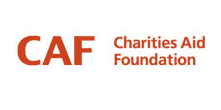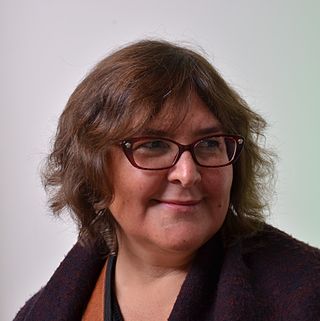
A think tank, or policy institute, is a research institute that performs research and advocacy concerning topics such as social policy, political strategy, economics, military, technology, and culture. Most think tanks are non-governmental organizations, but some are semi-autonomous agencies within government, and some are associated with particular political parties, businesses or the military. Think tanks are often funded by individual donations, with many also accepting government grants.
Philanthropy is a form of altruism that consists of "private initiatives for the public good, focusing on quality of life". Philanthropy contrasts with business initiatives, which are private initiatives for private good, focusing on material gain; and with government endeavors that are public initiatives for public good, such as those that focus on the provision of public services. A person who practices philanthropy is a philanthropist.
Open Society Foundations (OSF), formerly the Open Society Institute, is a US-based grantmaking network founded by business magnate George Soros. Open Society Foundations financially supports civil society groups around the world, with the stated aim of advancing justice, education, public health and independent media. The group's name was inspired by Karl Popper's 1945 book The Open Society and Its Enemies.

The Westminster Foundation for Democracy (WFD) is a United Kingdom non-departmental public body set up to support democratic institutions overseas. It was established on 26 February 1992 and registered as a company limited by guarantee in the UK. It receives funding from the Foreign, Commonwealth and Development Office (FCDO).

Juan E. Méndez is an Argentine lawyer, former United Nations Special Rapporteur on Torture and Other Cruel, Inhuman or Degrading Treatment or Punishment, and a human rights activist known for his work on behalf of political prisoners.

The Charities Aid Foundation (CAF) is a registered UK charity that operates in the United Kingdom, the United States of America and Canada. It works with companies, private philanthropists, regular donors, fellow foundations, governments, charities and not-for-profit enterprises to enable them to give more. Its stated purpose is to “accelerate progress in society towards a fair and sustainable future for all.”
Community foundations (CFs) are instruments of civil society designed to pool donations into a coordinated investment and grant making facility dedicated primarily to the social improvement of a given place. Community foundations are a global phenomenon with 1700 existing around the world, of which over 700 are in the United States. Private foundations are typically endowed by an individual or a single family.

Global Witness is an international NGO established on November 15 1993 that works to break the links between natural resource exploitation, conflict, poverty, corruption, and human rights abuses worldwide. The organisation has offices in London and Washington, D.C.

European Digital Rights is an international advocacy group headquartered in Brussels, Belgium. EDRi is a network collective of non-profit organizations (NGO), experts, advocates and academics working to defend and advance digital rights across the continent. As of October 2022, EDRi is made of more than 40 NGOs, as well as experts, advocates and academics from all across Europe.

Women of Uganda Network (WOUGNET) also known as Women of Uganda Network Development Limited is Ugandan non-governmental organization that aids women and women's organisations in the use and access of information and communication technologies (ICTs) to share information and address issues their concerns such as gender norms, advocating for their rights and building communities and businesses through education.

Ungana-Afrika, Swahili for "connect africa", is a non-governmental organisation based in Pretoria, South Africa that provides a wide range of ICT services for civil society within and outside of the continent. It aims to better empower civil society organisations, networks and related stakeholders, in terms of ICT capacity and resources, so they may more efficiently achieve their unique social missions.
Vital Voices Global Partnership is an American international, 501(c)(3), non-profit, non-governmental organization that works with women leaders in the areas of economic empowerment, women's political participation, and human rights. The organization is headquartered in Washington, D.C.

DSW is an international private non-profit foundation addressing Sexual & Reproductive Health (SRH) and population dynamics. DSW funds its project and advocacy work from private donations and the financial support of governments, foundations and other organisations. It has its headquarters in Hanover, Germany.

Nnenna Nwakanma is a Nigerian FOSS activist, community organizer, development adviser. She worked for the United Nations for 15 years and she was the Interim Policy Director for the World Wide Web Foundation

Deutsche Welthungerhilfe e. V. – or Welthungerhilfe for short – is a German non-denominational and politically independent non-profit and non-governmental aid agency working in the fields of development cooperation and humanitarian assistance. Since its founding in 1962, it has used 4.2 billion euros to carry out more than 10.369 projects in 70 countries in Africa, Latin America and Asia.[1] Welthungerhilfe holds the Seal of Approval awarded by Deutsches Zentralinstitut für Soziale Fragen (DZI). In 2014, Welthungerhilfe and the aid organization World Vision International were announced the most transparent German organizations.
The International Renaissance Foundation (IRF) is a Ukrainian NGO founded by George Soros. It was founded in April 1990. IRF is an integral part of the Open Society Foundations which incorporates national and regional foundations in more than thirty countries around the world, primarily in Central and Eastern Europe, as well as the former Soviet Union. These foundations share a common goal of supporting educational, social and legal initiatives that promote the development and establishment of an open society.

The Open Government Partnership (OGP) is a multilateral initiative aimed at securing commitments from national and sub-national governments to promote open government, combat corruption, and improve governance. The OGP is managed by a steering committee that includes representatives from both governments and civil society organizations.

ERSTE Foundation is the biggest Austrian savings bank foundation. In 2003, it evolved from the Erste österreichische Spar-Casse, the first Austrian savings bank founded in 1819. It is the main shareholder of Erste Group. As a private austrian savings banks foundation, the foundation invests parts of its dividends to support the development of societies in Central and South Eastern Europe.
CIVICUS is an international non-profit organisation, which describes itself as "a global alliance dedicated to strengthening citizen action and civil society around the world." Founded in 1993, the organisation today counts more than 8500 members in more than 175 countries, with its headquarters in Johannesburg and offices in Geneva and New York.

Anriette Esterhuysen is a human rights defender and computer networking pioneer from South Africa. She has pioneered the use of Internet and Communications Technologies (ICTs) to promote social justice in South Africa and throughout the world, focusing on affordable Internet access. She was the executive director of the Association for Progressive Communications from 2000 until April 2017, when she became APC's Director of Policy and Strategy. In November 2019 United Nations Secretary-General António Guterres appointed Esterhuysen to chair the Internet Governance Forum’s Multistakeholder Advisory Group.














